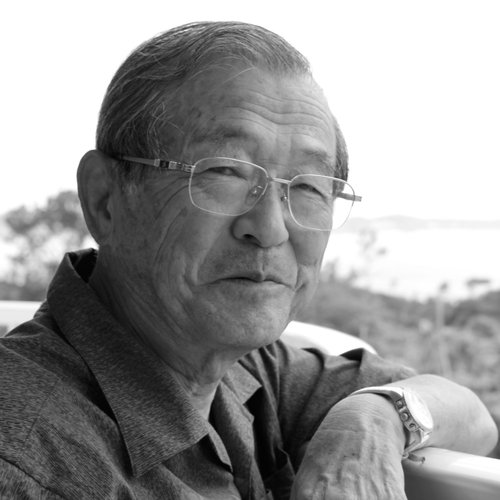
Director, Okinawa Research Center for Longevity Science
Principal Investigator, Okinawa Centenarian Study
Professor Emeritus, Faculty of Medicine, University of the Ryukyus
MAKOTO SUZUKI
Makoto Suzuki MD, PhD is a clinical cardiologist and geriatrician. He is Professor Emeritus at the University of the Ryukyus. From 1976 to 1999, he served as the Director of the Department of the Community Medical Service in the Ryukyu University Hospital and was the Chief Director of the Comprehensive Medicine Research Center at the University of the Ryukyus. In 2005, he retired from his position as Professor in the Department of Human Welfare at Okinawa International University. Currently, he directs the Okinawa Research Center for Longevity Science and is the Principle Investigator of the Okinawa Centenarian Study.
In 1976, Dr. Suzuki started the Living Centenarian Study supported by funding from the Japan Ministry of Health, Labour and Welfare. He has visited local residences, mostly homes, for nearly 1,000 centenarians and thousands of younger elders in their seventies, eighties, and nineties. He has clinically examined each individual directly with his own naked eyes.
Dr. Suzuki has over 300 scientific publications in peer-reviewed journals and his total publications number over 700 including scientific manuscripts, conference proceedings, books such as “The Centenarians,” “The Centenarians Science,” “Japanese Centenarians,” and book chapters in an aging and health, especially centenarians research. In 1981, he organized the International 100 Club in Hamburg, Germany. This became the first international multidisciplinary cooperative research group of centenarians. As the first scientist to make a comprehensive study of Okinawan longevity, he organized a conference in 1995 in which the Director of the World Health Organization supported the proclamation of Okinawa as a World Longevity Region.
In 1998, Dr. Suzuki was presented with the Nishinippon News Award to recognize his lifetime contributions to health and wellbeing in Japan.

Director, Okinawa Research Center for Longevity Science
Principal Investigator, Okinawa Centenarian Study
Professor Emeritus, Faculty of Medicine, University of the Ryukyus
MAKOTO SUZUKI
Makoto Suzuki MD, PhD is a clinical cardiologist and geriatrician. He is Professor Emeritus at the University of the Ryukyus. From 1976 to 1999, he served as the Director of the Department of the Community Medical Service in the Ryukyu University Hospital and was the Chief Director of the Comprehensive Medicine Research Center at the University of the Ryukyus. In 2005, he retired from his position as Professor in the Department of Human Welfare at Okinawa International University. Currently, he directs the Okinawa Research Center for Longevity Science and is the Principle Investigator of the Okinawa Centenarian Study.
In 1976, Dr. Suzuki started the Living Centenarian Study supported by funding from the Japan Ministry of Health, Labour and Welfare. He has visited local residences, mostly homes, for nearly 1,000 centenarians and thousands of younger elders in their seventies, eighties, and nineties. He has clinically examined each individual directly with his own naked eyes.
Dr. Suzuki has over 300 scientific publications in peer-reviewed journals and his total publications number over 700 including scientific manuscripts, conference proceedings, books such as “The Centenarians,” “The Centenarians Science,” “Japanese Centenarians,” and book chapters in an aging and health, especially centenarians research. In 1981, he organized the International 100 Club in Hamburg, Germany. This became the first international multidisciplinary cooperative research group of centenarians. As the first scientist to make a comprehensive study of Okinawan longevity, he organized a conference in 1995 in which the Director of the World Health Organization supported the proclamation of Okinawa as a World Longevity Region.
In 1998, Dr. Suzuki was presented with the Nishinippon News Award to recognize his lifetime contributions to health and wellbeing in Japan.
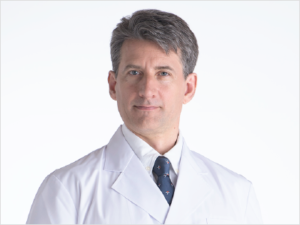
Co-Principal Investigator, Okinawa Centenarian Study
Chair and Professor of Public Health and Gerontology, Department of Human Welfare, Okinawa International University
Adjunct Professor of Geriatric Medicine, John A. Burns School of Medicine, University of Hawai‘i at Manoa
Fellow, The Gerontological Society of America
D. CRAIG WILLCOX
Craig Willcox PhD, MHSc, FGSA has been studying genetic and lifestyle factors associated with healthy aging and longevity for over two decades and has successfully established numerous cross-national research collaborations through the National Institutes of Health and the National Institute on Aging and projects supported by national funding agencies in Japan, such as the Japan Society for Promotion of Sciences, among other sources. He currently serves as Co-Principal Investigator of the Okinawa Centenarian Study and Head of the Okinawa Research Center for Longevity Science R&D, as well as a co-investigator or consultant for several ancillary R-01 funded studies of aging from the Kuakini Honolulu Heart Program. These include the Kuakini Hawaii LIFESPAN and HEALTHSPAN Studies.
Dr. Willcox is a fluent speaker of Japanese and has extensive research experience in bio-cultural approaches to healthy aging including, anthropological, epidemiological, and nutritional, with further experience in human population genetics and the study of gene-environment interactions. The team that he manages in Okinawa has over 40 years of experience in geriatrics and gerontology research and his team in Hawaii recently celebrated a half century since the inception of the Honolulu Heart Program and has been a leader in establishing the field of genetic epidemiology. His team in Okinawa reported the first longevity-associated gene variants in humans (Takata et al., Lancet 1987 PMID: 2889033) and his team in Hawaii discovered that the human homolog (FOXO3) of the nematode daf-16 gene also strongly impacts human longevity (Willcox et al., PNAS, 2008 PMID: 18765803).
Dr. Willcox has also been an invited participant at numerous international meetings that have focused upon identifying priorities in aging research such as the FUTURAGE workshop (Roadmap for Aging Research in the EU), and contributes as Associate Editor to numerous journals devoted to research on aging, such as Journals of Gerontology: Biological and Medical Sciences, Gerontology, BMC Geriatrics, Rejuvenation Research, Journal of Cross Cultural Gerontology, Nutrition and Aging, and the recently established Nature partner journal npj Mechanisms of Aging and Disease, among others. Recently, he guest edited a special issue on centenarian studies and their contribution to our understanding of the aging process and longevity that was published in Current Gerontology and Geriatrics Research. He has several nominations for Who’s Who in Healthcare and Medicine in the past few years and co-authored two best-selling books (The Okinawa Program and The Okinawa Diet Plan) on healthy aging that translate his research findings into practical public health programs. The Okinawa Program was nominated for “Best Wellness Book of the Year” by “Books for a Better Life” and received further honors from both Amazon.com and Barnes and Nobles as one of their Top Fifty Books of the Year for 2001. He also consults regularly for industry, having recently consulted for Chanel, VHI Healthcare (largest private health provider in Ireland), Amway (Nutrilite) and other well-known leaders in product development that promotes healthy aging. His work has appeared in cover articles of National Geographic, Newsweek, Time Magazine, and on Oprah, CNN, MSNBC, Good Morning America, NOVA Science, BBC, among other media.

Co-Principal Investigator, Okinawa Centenarian Study
Chair and Professor of Public Health and Gerontology, Department of Human Welfare, Okinawa International University
Adjunct Professor of Geriatric Medicine, John A. Burns School of Medicine, University of Hawai‘i at Manoa
Fellow, The Gerontological Society of America
Co-Principal Investigator, Okinawa Centenarian Study
Chair and Professor of Public Health and Gerontology, Department of Human Welfare, Okinawa International University
Adjunct Professor of Geriatric Medicine, John A. Burns School of Medicine, University of Hawai‘i at Manoa
Fellow, The Gerontological Society of America
D. CRAIG WILLCOX
Craig Willcox PhD, MHSc, FGSA has been studying genetic and lifestyle factors associated with healthy aging and longevity for over two decades and has successfully established numerous cross-national research collaborations through the National Institutes of Health and the National Institute on Aging and projects supported by national funding agencies in Japan, such as the Japan Society for Promotion of Sciences, among other sources. He currently serves as Co-Principal Investigator of the Okinawa Centenarian Study and Head of the Okinawa Research Center for Longevity Science R&D, as well as a co-investigator or consultant for several ancillary R-01 funded studies of aging from the Kuakini Honolulu Heart Program. These include the Kuakini Hawaii LIFESPAN and HEALTHSPAN Studies.
Dr. Willcox is a fluent speaker of Japanese and has extensive research experience in bio-cultural approaches to healthy aging including, anthropological, epidemiological, and nutritional, with further experience in human population genetics and the study of gene-environment interactions. The team that he manages in Okinawa has over 40 years of experience in geriatrics and gerontology research and his team in Hawaii recently celebrated a half century since the inception of the Honolulu Heart Program and has been a leader in establishing the field of genetic epidemiology. His team in Okinawa reported the first longevity-associated gene variants in humans (Takata et al., Lancet 1987 PMID: 2889033) and his team in Hawaii discovered that the human homolog (FOXO3) of the nematode daf-16 gene also strongly impacts human longevity (Willcox et al., PNAS, 2008 PMID: 18765803).
Dr. Willcox has also been an invited participant at numerous international meetings that have focused upon identifying priorities in aging research such as the FUTURAGE workshop (Roadmap for Aging Research in the EU), and contributes as Associate Editor to numerous journals devoted to research on aging, such as Journals of Gerontology: Biological and Medical Sciences, Gerontology, BMC Geriatrics, Rejuvenation Research, Journal of Cross Cultural Gerontology, Nutrition and Aging, and the recently established Nature partner journal npj Mechanisms of Aging and Disease, among others. Recently, he guest edited a special issue on centenarian studies and their contribution to our understanding of the aging process and longevity that was published in Current Gerontology and Geriatrics Research. He has several nominations for Who’s Who in Healthcare and Medicine in the past few years and co-authored two best-selling books (The Okinawa Program and The Okinawa Diet Plan) on healthy aging that translate his research findings into practical public health programs. The Okinawa Program was nominated for “Best Wellness Book of the Year” by “Books for a Better Life” and received further honors from both Amazon.com and Barnes and Nobles as one of their Top Fifty Books of the Year for 2001. He also consults regularly for industry, having recently consulted for Chanel, VHI Healthcare (largest private health provider in Ireland), Amway (Nutrilite) and other well-known leaders in product development that promotes healthy aging. His work has appeared in cover articles of National Geographic, Newsweek, Time Magazine, and on Oprah, CNN, MSNBC, Good Morning America, NOVA Science, BBC, among other media.
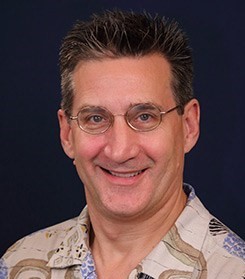
Co-Principal Investigator, Okinawa Centenarian Study
Principal Investigator, Hawaii LIFESPAN and HEALTHSPAN Studies, Honolulu Heart Program
Professor and Director of Research, Department of Geriatric Medicine, John A. Burns School of Medicine, University of Hawai‘i at Manoa
Fellow, The Gerontological Society of America
BRADLEY WILLCOX
Bradley Willcox MD, MSc, FGSA is an internationally recognized expert in healthy aging with training in geriatrics and gerontology.
Dr. Willcox trained in Medicine at the University of Toronto, Internal Medicine at the Mayo Clinic, and Geriatric Medicine at Harvard Medical School. He is Principal Investigator of the National Institute on Aging-funded Hawaii LIFESPAN and HEALTHSPAN Studies and a Honolulu Heart Program researcher at Kuakini Medical Center. Dr. Willcox is also Co-Principal Investigator of the Okinawa Centenarian Study and a researcher at the Pacific Health Research and Education Institute of the VA Pacific Islands Health Care System in Honolulu.
Dr. Willcox completed a Bachelor of Science (General Sciences) and Master of Science (Neuroscience) at the University of Calgary. He trained in Medicine at the University of Toronto, Internal Medicine at the Mayo Clinic, and Geriatric Medicine at Harvard Medical School. He completed further training in Genetic Epidemiology funded by the U.S. National Institute on Aging (NIA). He is Principal Investigator (PI) of the NIA-funded Hawaii Lifespan and Healthspan Studies at Kuakini Medical Center, where is PI and Director of the NIGMS-funded Kuakini HHP Center for Translational Research on Aging. Dr. Willcox is also a longstanding Co-Principal Investigator of the Okinawa Centenarian Study and a researcher at the Pacific Health Research and Education Institute of the VA Pacific Islands Health Care System in Honolulu.

Co-Principal Investigator, Okinawa Centenarian Study
Principal Investigator, Hawaii LIFESPAN and HEALTHSPAN Studies, Honolulu Heart Program
Professor and Director of Research, Department of Geriatric Medicine, John A. Burns School of Medicine, University of Hawai‘i at Manoa
Fellow, The Gerontological Society of America
BRADLEY WILLCOX
Bradley Willcox MD, MSc, FGSA is an internationally recognized expert in healthy aging with training in geriatrics and gerontology.
Dr. Willcox trained in Medicine at the University of Toronto, Internal Medicine at the Mayo Clinic, and Geriatric Medicine at Harvard Medical School. He is Principal Investigator of the National Institute on Aging-funded Hawaii LIFESPAN and HEALTHSPAN Studies and a Honolulu Heart Program researcher at Kuakini Medical Center. Dr. Willcox is also Co-Principal Investigator of the Okinawa Centenarian Study and a researcher at the Pacific Health Research and Education Institute of the VA Pacific Islands Health Care System in Honolulu.
Dr. Willcox completed a Bachelor of Science (General Sciences) and Master of Science (Neuroscience) at the University of Calgary. He trained in Medicine at the University of Toronto, Internal Medicine at the Mayo Clinic, and Geriatric Medicine at Harvard Medical School. He completed further training in Genetic Epidemiology funded by the U.S. National Institute on Aging (NIA). He is Principal Investigator (PI) of the NIA-funded Hawaii Lifespan and Healthspan Studies at Kuakini Medical Center, where is PI and Director of the NIGMS-funded Kuakini HHP Center for Translational Research on Aging. Dr. Willcox is also a longstanding Co-Principal Investigator of the Okinawa Centenarian Study and a researcher at the Pacific Health Research and Education Institute of the VA Pacific Islands Health Care System in Honolulu.
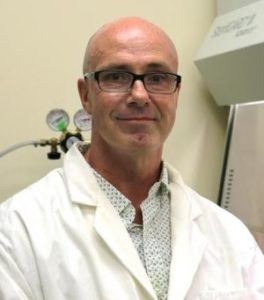
Research Consultant, ORCLS
Associate Professor, Institute for Biogenesis Research, Department of Anatomy and Reproductive Biology, John A. Burns School of Medicine, University of Hawai‘i at Manoa
RICHARD ALLSOPP
Richard Allsopp PhD is a pioneer in the field of biogenesis through his research on telomere and stem cell biology.
Dr. Allsopp received his PhD from McMaster University, Hamilton Ontario Canada. Subsequently, he spent five years training in the prestigious stem cell lab of Dr. Irving Weissman at Stanford University, before joining the University of Hawai‘i as faculty in 2003.
Dr. Allsopp’s major research focus is the cellular and molecular mechanisms of aging. In particular, he has long been interested in telomere-induced senescence, factors which regulate telomerase in stem cells, and on developing novel telomerase-based therapies to treat age-related diseases. Of note, Dr. Allsopp’s lab was the first to discover the essential role of Hif1 on telomerase expression in embryonic stem cells. He is also interested in studying age-dependent changes in stem cell populations in adult organisms, including humans. He has over 10 years experience in studying and isolating hematopoietic stem cells and 20 years experience in studying telomere & telomerase biology. Recently, he has shown that adipose derived stem cells are particularly useful in treating infarcts in a human-to-rodent model system.

Research Consultant, ORCLS
Associate Professor, Institute for Biogenesis Research, Department of Anatomy and Reproductive Biology, John A. Burns School of Medicine, University of Hawai‘i at Manoa
RICHARD ALLSOPP
Richard Allsopp PhD is a pioneer in the field of biogenesis through his research on telomere and stem cell biology.
Dr. Allsopp received his PhD from McMaster University, Hamilton Ontario Canada. Subsequently, he spent five years training in the prestigious stem cell lab of Dr. Irving Weissman at Stanford University, before joining the University of Hawai‘i as faculty in 2003.
Dr. Allsopp’s major research focus is the cellular and molecular mechanisms of aging. In particular, he has long been interested in telomere-induced senescence, factors which regulate telomerase in stem cells, and on developing novel telomerase-based therapies to treat age-related diseases. Of note, Dr. Allsopp’s lab was the first to discover the essential role of Hif1 on telomerase expression in embryonic stem cells. He is also interested in studying age-dependent changes in stem cell populations in adult organisms, including humans. He has over 10 years experience in studying and isolating hematopoietic stem cells and 20 years experience in studying telomere & telomerase biology. Recently, he has shown that adipose derived stem cells are particularly useful in treating infarcts in a human-to-rodent model system.

Christal Burnette
Okinawan Health and Plant Specialist, Certified Yakuzen Advisor
Researcher & Media Promoter, Okinawa Research Center for Longevity Science
Master’s Degree, Faculty of Agriculture, University of the Ryukyus
CHRISTAL BURNETTE
Christal Burnette MS is a distinguished specialist in the field of Okinawan health and plant-based nutrition. She received her master’s degree from the University of Ryukyus in 2018 and has since been dedicated to promoting the Okinawan diet and lifestyle. To this end, she founded the Haitai Corporation, which specializes in developing and distributing Okinawan health products both domestically and internationally.
Fluent in Japanese, Christal conducts interviews with Okinawan residents and research into the Okinawan diet and lifestyle. Her extensive knowledge and expertise have earned her recognition on various platforms, including a feature on the BBC. In addition, she regularly presents her findings on Okinawan longevity and lifestyle to diverse audiences through her YouTube channel, Haitai Longevity.
Christal’s ongoing commitment to promoting the Okinawan diet and lifestyle is geared towards raising awareness of healthy aging and living based on Okinawan principles.
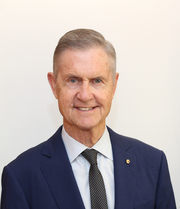
AM DSc PhD FAHA ISHF
Professor Emeritus in the School of Medical Sciences,
Faculty of Medicine and Health, at University of Sydney in Sydney, Australia.
BRIAN J. MORRIS
Brian J. Morris, AM DSc PhD FAHA ISHF is Professor Emeritus in the School of Medical Sciences,
Faculty of Medicine and Health, at the University of Sydney in Sydney, Australia. He has been interested in healthy aging and longevity since 1965 at age 15, which coincidentally is when the Honolulu Heart Program began, and with which he has been involved since 2012.
Brian is a graduate of the University of Adelaide, doing his Ph.D. at the Department of Medicine at the University of Melbourne and Monash University before in the field of molecular and cell biology of hypertension, then winning a prestigious CJ Martin Fellowship in 1975 for postdoctoral studies at the University of Missouri and University of California Schools of Medicine, the last year as an Advanced Fellow of the American Heart Association. He was appointed as an academic at the University of Sydney in 1978, becoming a full professor in 1999, and Professor Emeritus in 2013. He received a DSc from the University of Sydney in 1993.
He has 450 publications, including, but not limited to, 184 on laboratory-based research findings published in international journals after regular submission and review, 97 reviews and meta-analyses in refereed international journals, 44 research and review articles in international journals invited at conferences, 55 letters to the editor published in journals, 21 invited chapters in edited books, and two monographs. He initiated the research and was the primary author of most of these. His publications have been cited over 17,000 times, have had over 250,000 reads, and have a research interest score of over 6,000. His H-index is 66. As well he has had over 550 abstracts presented at national and international scientific conferences.
Brian’s molecular biology research was followed by inaugural publications on the molecular genetics of hypertension. In 1987 he and a Sydney colleague invented the first PCR test for viral detection, leading to patents being awarded in the US, Australia, the UK, Europe, and Japan, with patenting costs covered by Roche Diagnostics. He led the campaign to use HPV PCR to replace pap smears for cervical screening. He promoted self-sampling by women themselves. He was interviewed on a major TV network when the switch to HPV PCR in Australia took place in 2017. In 2010 he Founded, then became the ongoing leader of the Circumcision Academy of Australia Inc.
After an invitation by Brad Willcox to undertake a sabbatical at Kuakini Medical Center he adopted a role in boosting the research publication output of the Honolulu Heart Program in 2012, leading to grants, including a 5-year NIH Center of Biomedical Center of Excellence in Aging to Sep 2024. Organizer, chair, and invited presenter for major national and international conferences. Initiated and organized the first international conference on the molecular genetics of hypertension, held in Sydney in 1994 as a satellite of the International Society of Hypertension (ISH); Secretary for 2012 ISH satellite. Initiated first Australian national symposia on healthy ageing and longevity, held in 2002 & 2003. He was Chair of the executive committee for International Conferences on Healthy Ageing & Longevity, held 2014, 2015, 2016. Brian was a member of Executive Committees of the High Blood Pressure Research Council of Australia (Student Liaison 1995-97, Treasurer 2008–2010, Abstract Editor 2014–2017). He was an editor for Institute and Department research reports from 1978–2017, a member of NHMRC grant interview committees and review panels for decades. He has been a reviewer for over 800 manuscripts for journals. The news media have used his expertise in public health issues, resulting in over 40 major national TV news and current affairs programs (3 on “60 Minutes”), over 200 radio interviews, over 200 articles in newspapers and magazines, and hundreds of online news media reports.
Amongst a number of awards over many years, in 2014 he was bestowed the Irvine Page Alva Bradley Lifetime Achievement Award from AHA Council on Hypertension, and in 2018 he was made a Member of the Order of Australia for his service to research and teaching in the hypertension field. His teaching was recognized by the University of Sydney Faculty of Medicine Award for Excellence in Postgraduate Research Supervision in 2006. Mentees have gone on to senior academic and industry appointments in Australia, the USA, and UK. One was later Dean of Medicine at the University of Sydney for 10 years.
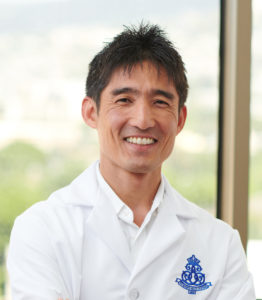
Chief, Neuroscience Institute
Chief, Division of Neurology
Professor, Department of Medicine, John A. Burns School of Medicine, University of Hawaiʻi (UH-
JABSOM)
KAZUMA NAKAGAWA
Kazuma Nakagawa, MD is the Chief of the Neuroscience Institute at The Queen’s Medical Center to oversee the inpatient and outpatient neurology, neurosurgery, and neuro-interventional surgery divisions. He oversees Epilepsy Center, General Neurology, Headache Center, Movement Disorder Center, Neurohospitalist, Neuroimmunology, Neurocritical Care, Neuromuscular, Cerebrovascular Neurosurgery, Spine Neurosurgery, General Neurosurgery, Neurointerventional Surgery, and Neuroscience Research programs. Dr. Nakagawa practices as a neurointensivist and stroke neurologist, caring for critically ill patients with severe neurological conditions including stroke and traumatic brain injury. Dr. Nakagawa is also the Division Chief of Neurology and Professor of Medicine at University of Hawaii John A. Burns School of Medicine to provide oversight on neurology education among the JABSOM medical students and residents. Dr. Nakagawa obtained his medical degree from University of Florida, completed his neurology residency at the Mass General Brigham Neurology Residency Program, and completed his neurocritical care fellowship at University of California San Francisco. His research endeavor involves understanding the clinical, genetic, and social factors that impact the stroke-related health disparities observed among the Native Hawaiians in Hawaii and understanding how a longevity-associated FOXO3 gene mitigates the deleterious effect of hypertension on the cerebral blood vessels and potentially reduces the risk of ischemic and hemorrhagic stroke.